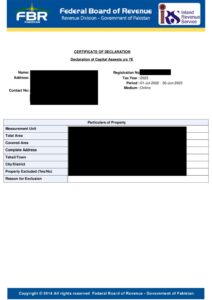Table of Contents
a) Pakistan Source Income [S-2(40) & 101]
When it comes to tax obligations, understanding the geographical source of income is paramount. Here’s how it applies to residents and non-residents:
- Resident Individuals:
- Residents are taxed on their worldwide income, including income sourced within Pakistan.
- Non-Resident Individuals:
- Non-residents are taxed on their income sourced within Pakistan.

b) Foreign Source Income [S-2(27) & 101(16)]
Turning our attention to foreign source income, the tax treatment varies for residents and non-residents:
- Resident Individuals:
- Residents are taxed on their income earned both within and outside Pakistan.
- Non-Resident Individuals:
- Non-residents are generally not taxed on income earned outside Pakistan.
Determining Resident Status
If you want to determine whether you are a resident in Pakistan, you can follow these steps:
1. Visit the Relevant Post
For individuals seeking clarity on their residential status, navigating the tax landscape becomes easier with a dedicated guide. Click on the link provided here to access a post that comprehensively outlines the criteria for determining residential status in Pakistan.
2. Read and Understand
Once on the post, carefully read through the content to absorb the criteria used in assessing residential status. Factors such as physical presence, nationality, and other considerations may play a pivotal role.
3. Consult with Professionals:
If needed, consult with tax professionals or experts who can provide personalized advice based on your specific circumstances

Summary
| Income | Resident | Non Resident |
| Pakistan Source Income | Taxable | Taxable |
| Foreign Source Income | Taxable | Not Taxable |

Frequently Asked Questions (FAQs) and Their Answers
Here are some frequently asked questions (FAQs) and answers.
1. What is the significance of understanding the geographical source of income for tax purposes in Pakistan?
Understanding the geographical source of income is crucial for both residents and non-residents in Pakistan to fulfill their tax obligations. Residents are taxed on worldwide income, while non-residents focus on income sourced within Pakistan.
2. How does tax treatment differ for residents and non-residents regarding foreign source income?
Residents are taxed on income earned within and outside Pakistan, while non-residents are generally not taxed on income earned outside Pakistan. This distinction is vital for individuals with international financial activities.
3. How can individuals determine their resident status in Pakistan for tax purposes?
Navigating through the criteria outlined in the dedicated guide on your website can help individuals determine their residential status. Factors like physical presence, nationality, and other considerations play a pivotal role.
4. Why is it essential for individuals to consult tax professionals regarding their resident status?
Consulting tax professionals provide personalized advice based on specific circumstances, ensuring individuals accurately understand their tax obligations. This step is especially beneficial for complex cases.
5. Can you provide an overview of the tax implications for residents and non-residents in Pakistan?
Residents are taxable on both Pakistan and foreign source income, while non-residents are taxable only on Pakistan source income. This summary helps readers grasp the core tax obligations based on their residency status.
6. How does the blog help individuals with tax-related queries?
The blog serves as a comprehensive guide, providing clarity on determining residential status, understanding tax obligations, and offering practical steps for individuals to follow. The accessible content aids in demystifying complex tax concepts.







